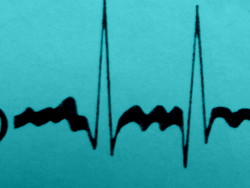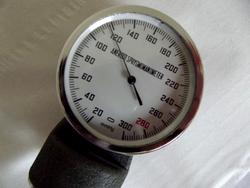
American researchers have found that acupuncture can improve cardiac function in patients with stable ischaemic heart disease. The trial was accepted for publication in the prestigious International Journal of Cardiology. In a randomized controlled study involving 151 subjects, mean age 63, allocated to receive traditional acupuncture, sham acupuncture or no intervention, they found that heart rate variability during mental stress tests, was higher in the traditional acupuncture group. Heart rate variability has previously been shown to be reduced in stable ischaemic heart disease patients, and this can be associated with sudden cardiac death.
The authors conclude the effect of acupuncture on heart rate variability may be clinically relevant and further work should be done.
(A randomized controlled trial of acupuncture in stable ischaemic heart disease patients. International Journal of Cardiology, on-line 11 July 2014. See http://www.internationaljournalofcardiology.com/article/S0167-5273(14)01201-7/abstract)


